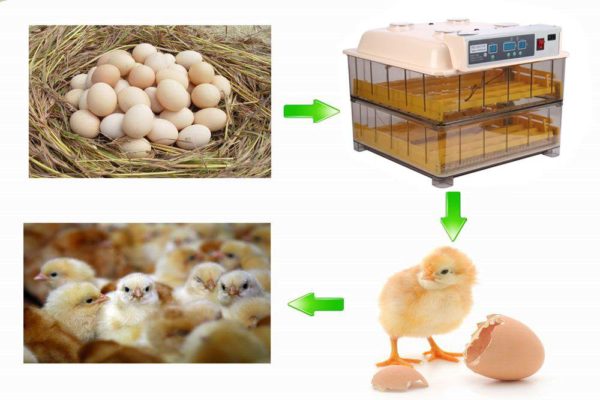
The invention of such a useful device as a home incubator has greatly facilitated the process of breeding birds at home for farmers. All that is required for breeding is to choose a suitable incubator, healthy eggs and carefully monitor the temperature regime.
Incubation of eggs at home, although not a very difficult task, but, nevertheless, requires considerable preparation and familiarization with the rules beforehand before laying the material.
Content
Incubator selection
When choosing a device for artificial hatching, eggs are guided by such criteria as
- size and capacity;
- manual or automatic temperature control;
- way of turning eggs: manual or automatic;
- the ability to connect backup power;
- the cost of the device.
The most reliable in management are incubators, in which the process of controlling all processes is fully automated, when a power outage occurs, an immediate connection to the battery. Such devices are the most expensive, but they justify themselves with a 100% yield of material, subject to high-quality bookmarks.
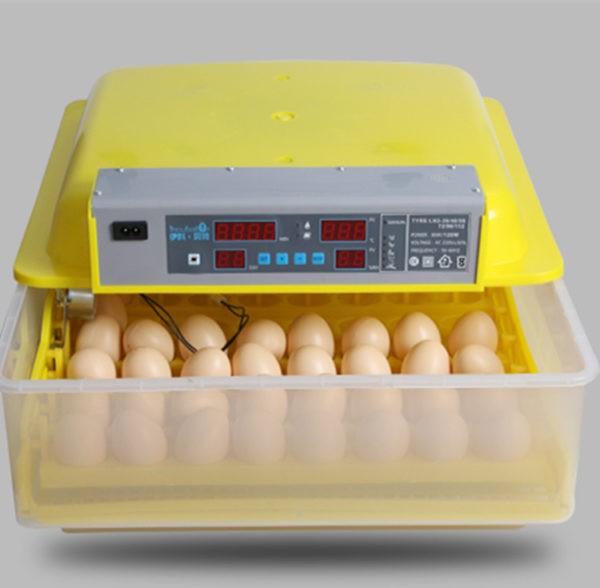
Egg preparation
Healthy offspring depends primarily on quality eggs. When selecting, the following parameters should be considered:
- The hens from which the eggs were taken, like the rooster in their company, must be healthy and strong.
- For laying in an incubator, eggs of the same average size are taken: from small eggs, the offspring will turn out to be frail, and too large ones have a very thin shell, which is also unfavorable.
- Carefully inspect for cracks, dents, creases or irregular shapes.
- Eggs intended for incubation are stored at a temperature of 10-18 ° C, in position with the sharp end down.
- The highest percentage of hatchability is observed from eggs whose shelf life does not exceed 5–7 days.
- Every day over this period, the probability of obtaining offspring is reduced.
- The optimal age of chickens for healthy offspring is 1.5-2 years.
- The nutrition of the bird is also of importance. The less artificial feed and additives in the diet, the healthier the offspring will be.
- The presence of microcracks, shifts, spots, and the location of the yolk can be checked with a device called an ovoscope.
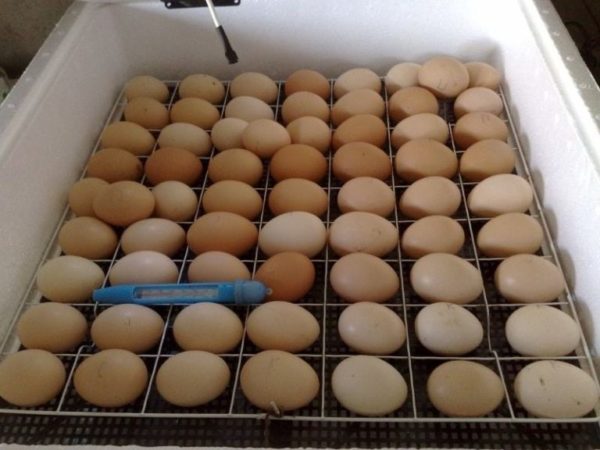
Important Modes
Temperature
Before laying in the incubator, the selected eggs must be warmed up at a temperature of + 25 °. The device does not need to be preheated. The most favorable temperature for ripening of the fetus in the egg is considered to be in the range of 37-400. Limit limits at which the embryo does not die + 27o minimum and + 43o maximum. But such limits can be allowed only for a short period of time, otherwise the offspring will turn out to be underdeveloped.

Humidity
Another important parameter for a successful brood. It is possible to avoid air drying in the incubator by evaporating water from a special reservoir at the bottom of the device. It is necessary to monitor this mode as well as the temperature. Optimum humidity indices are 50-80%, maximum permissible ones are 45% and 85%.
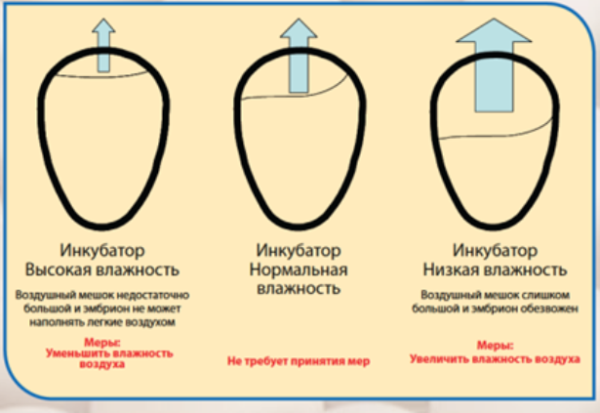
Ventilation
Nature arranged that the temperature at which a brood hen hatches chickens is regulated in her natural way. Instinctively, she knows when to ventilate, how much to leave the nest. In artificial conditions, airing the bookmark is necessary starting from the 15th day, twice a day for 10-15 minutes.
Flipping
Another very important point is the turning of the eggs for uniform heating. This manipulation in vivo the hen performs independently.
In home incubators, the rotation method depends on the device:
- manually - each egg is turned by hand;
- mechanical revolution - the action is performed for the entire masonry immediately using a special mechanical device;
- automatically - in modern expensive incubators, a special sensor monitors the time, performing a flip independently.
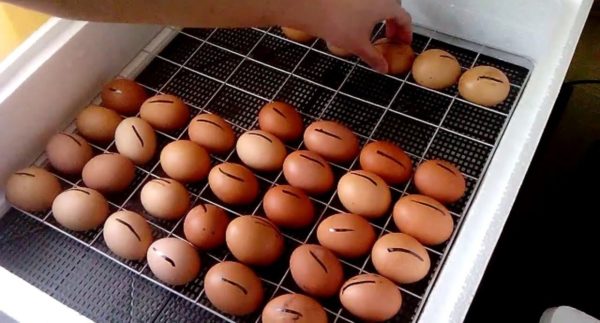
The most favorable time for a coup is every hour. If this is not possible, you can stretch the period to 4-8 hours, but you must do this at regular intervals.
Incubation periods
The ripening period of the chicken in the egg is 21 days. In some cases, a delay of 1–2 days is possible, but if the eggs do not hatch for 25 days, they must be discarded.
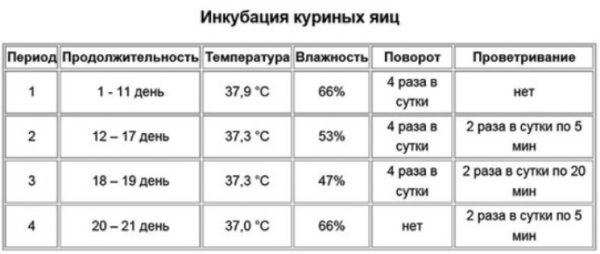
During its maturation, the embryo goes through 4 stages, which require special conditions of the regime.
- 1-7 day. Temperature - from 37.8 to 38o. Humidity - 60–70%. Turn over every hour. At the end of the period, it is time to inspect the masonry using an ovoscope. When scanned, the germplasm with the embryo will be clearly visible. Unfertilized or damaged eggs should be removed.
- 8-14 day. The temperature remains the same, but the humidity is reduced to 45-50%. Turn over less frequently, with even periods after 4 hours.
- 15-18 day. Temperature and humidity remain the same as in the previous stage, the frequency of the flips can be increased up to 6 hours. The mandatory procedure during this period is airing. Through a thin shell you can already hear a thin chicken squeak.
- 19-21 day. The temperature is slightly reduced to 37.4 - 37.5 degrees, humidity is increased to 70%. Airing and coups cease.
Hatched chicks are left to dry completely, and taken away from the incubator all together.

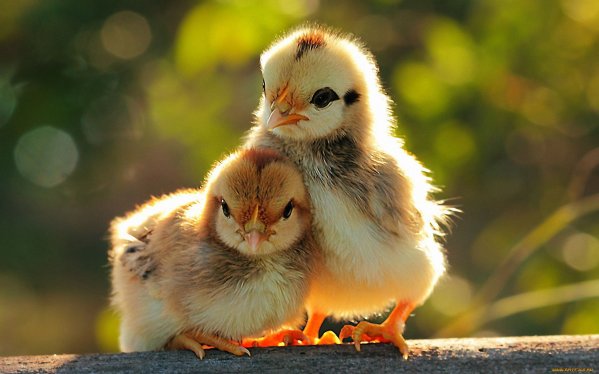
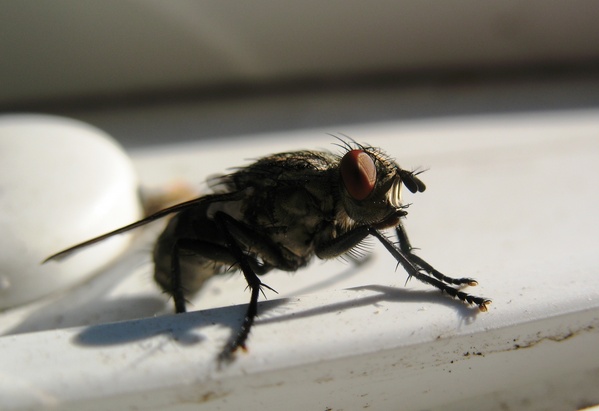
 Breeds of chicken meat and egg direction: an overview with a photo and description
Breeds of chicken meat and egg direction: an overview with a photo and description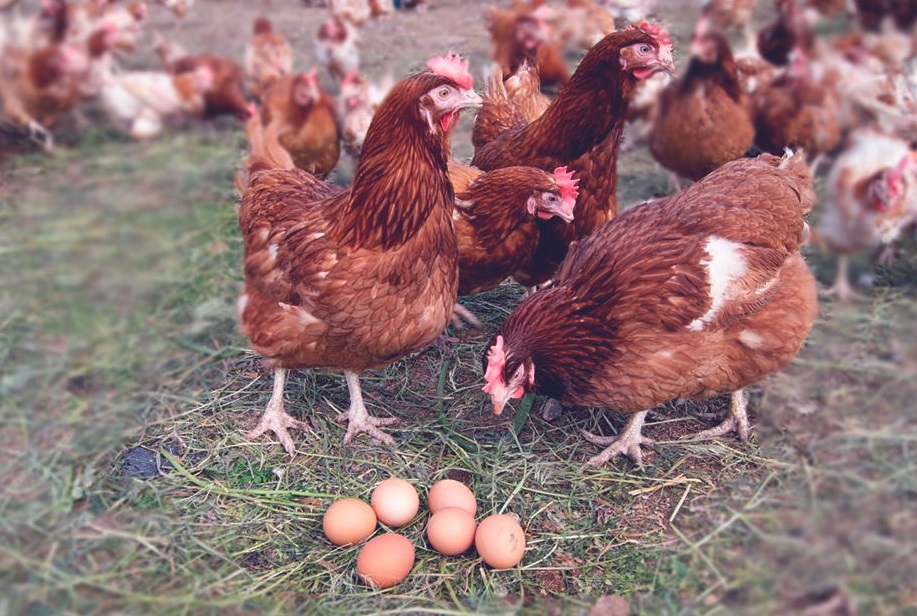 An overview of the breeds of egg-laying hens with photos and a description
An overview of the breeds of egg-laying hens with photos and a description What to do if chickens lay small eggs?
What to do if chickens lay small eggs?